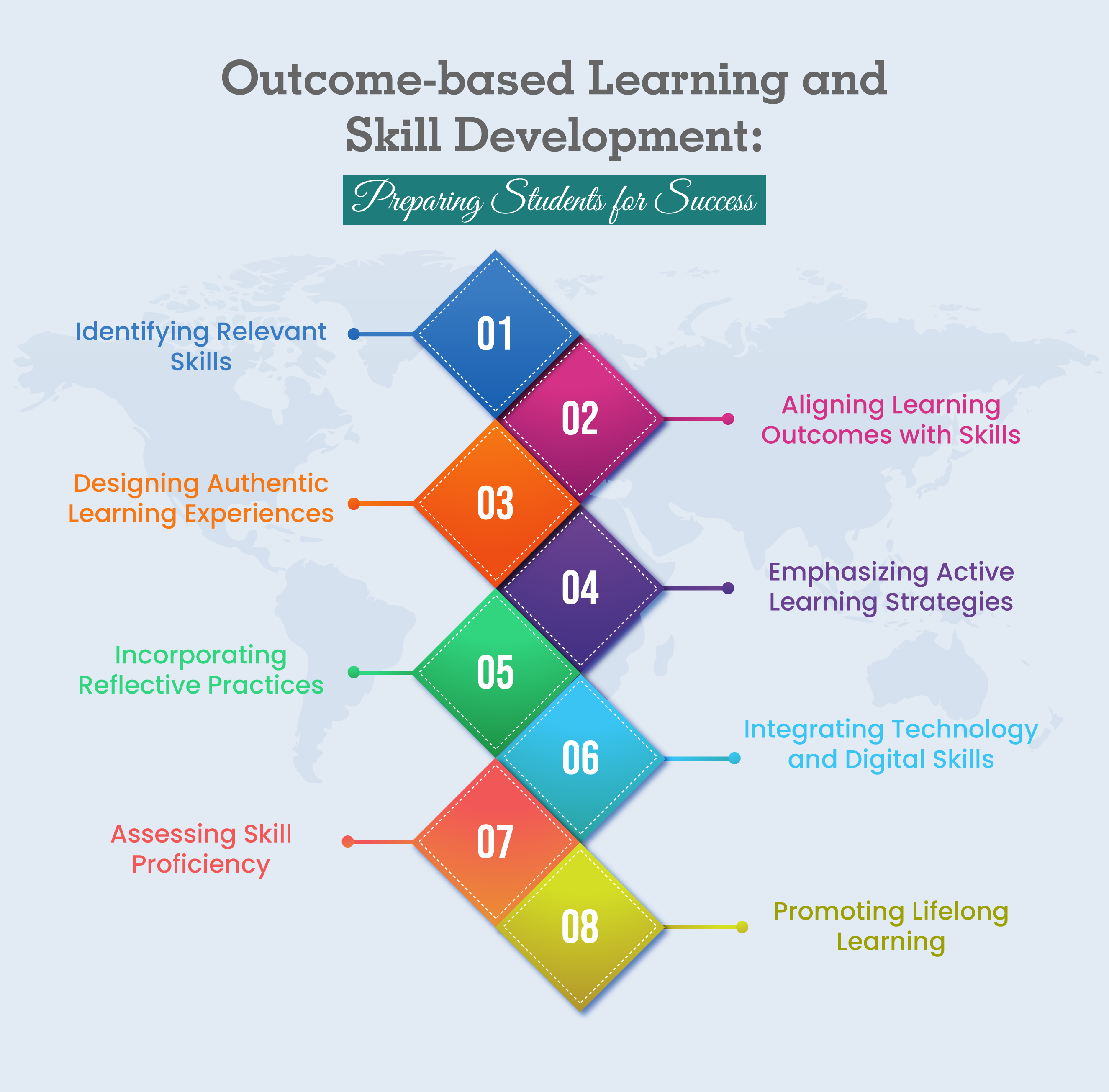
Introduction:
In today's dynamic and rapidly changing world, the acquisition of relevant skills is paramount for success. Outcome-based learning, with its focus on specific learning outcomes and competencies, plays a crucial role in developing the skills necessary for students to thrive in their personal and professional lives. This blog explores the relationship between outcome-based learning and skill development, highlighting the benefits and strategies for fostering skill acquisition through this approach.

Identifying Relevant Skills:
The first step in incorporating skill development into outcome-based learning is to identify the key skills that students need to succeed in their chosen fields. This can be done by consulting industry professionals, labor market trends, and conducting needs assessments. Skills such as critical thinking, problem-solving, communication, collaboration, adaptability, and digital literacy are often in high demand across various industries.
Aligning Learning Outcomes with Skills:
Once the essential skills are identified, align them with the learning outcomes of the curriculum. Ensure that each learning outcome explicitly connects to the development of specific skills. This alignment allows students to understand the purpose and relevance of their learning, and how it contributes to their overall skill development.
Designing Authentic Learning Experiences:
To foster skill development, design authentic learning experiences that mirror real-world situations. Incorporate project-based learning, case studies, simulations, internships, and community engagement opportunities into the curriculum. These experiences provide students with hands-on opportunities to apply their knowledge and skills, enabling them to develop and refine their abilities in a practical context.
Emphasizing Active Learning Strategies:
Active learning strategies are instrumental in promoting skill development. Move away from passive, lecture-based approaches and integrate active learning strategies that encourage student engagement and participation. Facilitate discussions, group work, problem-solving activities, and role-plays that require students to think critically, communicate effectively, collaborate, and apply their skills to solve complex problems.
Incorporating Reflective Practices:
Reflection is a powerful tool for skill development. Encourage students to reflect on their learning experiences, assess their progress, and identify areas for improvement. Provide opportunities for self-assessment and peer feedback, allowing students to evaluate their skills and receive constructive input from their peers and instructors. Reflection enhances self-awareness, metacognition, and the ability to continuously refine and develop skills.
Integrating Technology and Digital Skills:
Incorporate technology into the curriculum to foster digital literacy and enhance skill development. Provide opportunities for students to use digital tools, software, and online resources relevant to their field. Integrate technology-enhanced assessments, collaborative platforms, and multimedia presentations to promote digital fluency and the ability to navigate and thrive in the digital age.
Assessing Skill Proficiency:
Assessment plays a vital role in outcome-based learning and skill development. Use a variety of assessment methods to measure student proficiency in the identified skills. Design authentic assessments that require students to demonstrate their skills through real-world tasks, projects, portfolios, presentations, and performance-based assessments. Incorporate rubrics and clear criteria to provide students with feedback on their skill development progress.
Promoting Lifelong Learning:
Outcome-based learning instills a culture of lifelong learning, which is essential for continuous skill development. Encourage students to adopt a growth mindset, embrace new challenges, and seek opportunities for professional development. Equip them with the necessary skills to self-assess, set goals, and engage in lifelong learning beyond their formal education.
Conclusion:
Outcome-based learning provides a powerful framework for skill development, equipping students with the abilities they need to succeed in the modern world. By identifying relevant skills, aligning learning outcomes, designing authentic experiences, emphasizing active learning, incorporating reflection, integrating technology, assessing skill proficiency, and promoting lifelong learning, educators can ensure that students develop the competencies required for their future careers. By embracing outcome-based learning and skill development, institutions can empower students to thrive in a dynamic and ever-evolving society.